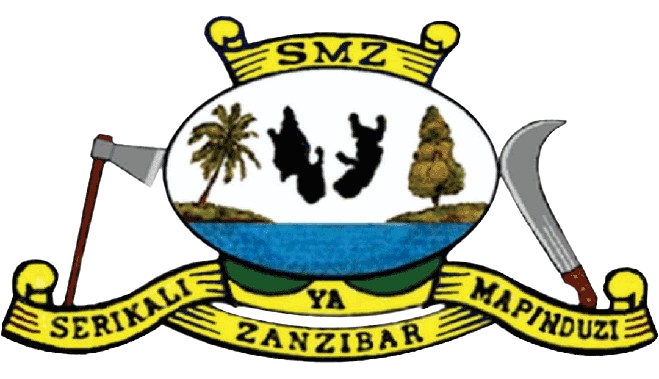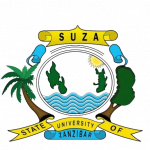The President of Zanzibar and Chairman of the Revolutionary Council who is also the
Chancellor of the State University of Zanzibar (SUZA), Dr. Hussein Mwinyi has called on the
SUZA community to focus more on research in order to bring about the development of the
country.
Dr. Mwinyi stated this during the inauguration ceremony of the Sheikh Abeid Amani Karume
Professorial Chair of Liberation and Development of Africa held at Dr. Ali Mohamed Shein
Conference Hall, Tunguu Campus. He said that the results of the conducted surveys would
provide the right information for policymakers to effectively plan for development.
The Chancellor added that research findings can also help in the identification of challenges
and opportunities that exist in various sectors, this enables stakeholders and government to
resolve those challenges and take full advantage of the opportunities that are being raised. He
emphasized on the importance of conducting research and other academic work through this
Chair for the sake of fostering professionalism and contribute to the development of the society.
“When you work out on this, you will have done rightfulness to this, hence honour the late
Sheikh Abeid Amani Karume,” said Dr. Mwinyi.
The Sheikh Abeid Amani Karume Professorial Chair of Liberation and Development of Africa
has multiple goals such as preserving, honouring and promoting his ideas in bringing about the
liberation and development of Zanzibar; others are making SUZA a place of exchanging of
ideas, promoting good cooperation in Africa and beyond, developing the capacity of youths
and academics by engaging them in surveys, conferences, symposiums and debates of the
Chair.
Meanwhile, Dr. Amani Abeid Karume, the sixth phase president of Zanzibar and the elder son
of the late Sheikh Karume who is also the Chair Ambassador praised the move and explained
that the founding of this Chair is the opening of a new chapter of history as this will be a catalyst
for the liberation and development of our nation.
He urged the young generation to honour this Revolutionist’s ideas through his important
documents which are full of extensive history, these could help them in having a wide
knowledge of many things, also enabling them to be curious in finding history from the elders.
“Enquire from those remaining six (6) percent of people born before the 1964 Revolution who
will inform you of many things which you are not aware of them,” he reminded.
He said following the foundation of this Chair, leaders must therefore stick on close supervision
of what entrusted by the late Karume in relation to development of the nation to see that they
are implemented.
“Leaders must respect the ideas of the Revolution by maintaining unity and resisting
discrimination of any kind, including providing education equally regardless of the shape, race
or geographical location as these are the ambitions of the Revolution led by the late Sheikh
Karume and his colleagues, so these ideas must be sustained in achieving the goal of the Chair,”
he said.
On his side, Professor Eginald Mihanjo, the appointed Chairperson of Sheikh Abeid Amani
Karume Professorial Chair of Liberation and Development of Africa, said there should be a
spadework to be done to the young generation to build them up as they do not know about
colonialism, nor do they know about independence.
He added that many of the arguments spoken by young people are not patriotic, do not promote
revolution or do not raise the economy,” he stressed.
“It is good to look at the strategies and operations and tactics of the late Sheikh Karume and
implement them to see how we can build the country using his philosophy,” he said.
In his remarks, the Vice-Chancellor of SUZA, Prof. Moh’d Makame Haji, revealed that the
Sheikh Abeid Amani Karume Professorial Chair of Liberation and Development of Africa is
purposely founded so as to preserve, honour and promote the ideas and concepts of Sheikh
Abeid Amani Karume in bringing about liberation and development.
He said the Chair would organize debates aimed at finding solutions to the challenges in the
economic, social, cultural and scientific fields consequently make SUZA develop the aspiration
of becoming a catalyst for social change.
In contributing to the debate, SUZA invited prominent dignitaries, including the fourth-phase
President of the United Republic of Tanzania, Dr. Jakaya Mrisho Kikwete, the seventh-phase
President of Zanzibar, Dr. Ali Mohamed Shein and a veteran politician Mr. Stephen Wasira.
In his contribution, Dr. Kikwete said the Sheikh Abeid Amani Karume Professorial Chair of
Liberation and Development of Africa is an honorary venture aimed at advancing research and
professionalism. He said SUZA had come up with the right decision by developing this Chair
that would focus on the liberation and people’s development.
He went on to explain that such Chairs provide a way to improve and stimulate the development
of specific professions while providing a growing opportunity to promote cooperation and
strengthen the policy of university internationalization. He was surprised by the existing nature
of universities in this era lacking a combination of professors from different nations, he said in
the past during their time of studying in the University of Dar es Salaam (UDSM) they had this
mixture of foreign professors.
On the matter of research, he said any development in the world is contributed by research,
though in making it prolific entails proper planning but also requires to meet its cost as it is the
basis of its development.
He called on SUZA in the later days to establish other Chairs, citing the University of Dar es
Salaam, which has more than one Chair mentioning them as the Nyerere Development Chair,
the Environmental Chair, the Kiswahili Professorial Chair and the Biotechnology Chair which
he said have all shown great success.
In his turn, Dr. Ali Mohamed Shein said the Chair has a great task of safeguarding the
Revolution and maintaining the Union between Tanganyika and Zanzibar. The Chair has a
notable obligation to build up those things, he continued to inform the audience.
“It is essential to keep in mind our revolution and it is obligatory and bounded to do so to
dismantle the discrimination that was opposed by the leaders who founded the 1964 Revolution
under the leadership of its commander, Sheikh Karume,” he said.
Dr. Shein went on to explain that the late Sheikh Karume had a spirit of heroism and patriotism;
he did much to benefit the people of Zanzibar, including free education, and even after his
assassination by the treasonists, all the subsequent leaders followed his footsteps by providing
free education and health services as an extension of his philosophy.
Dr. Shein also did not hesitate to discuss the issue of research, which he said should be
conducted to analyse the future of the nation in connection with the vision, thoughts and targets
of the late Sheikh Karume.
He stressed that it is good for the Chairs to focus on the reflects of the late Sheikh Karume so
that it would not not become occupied by ants later as ants are still there so this Chair has a
duty to honour and perform what this brave leader has executed, so we must all be ready to
nurture it.
Veteran politician, Stephen Wasira took the floor by clarifying in detail Zanzibar’s history in
the wake of its liberation which he said Zanzibar was marred by discrimination that the late
Sheikh Karume fought to ensure the elimination of the existed caste.

